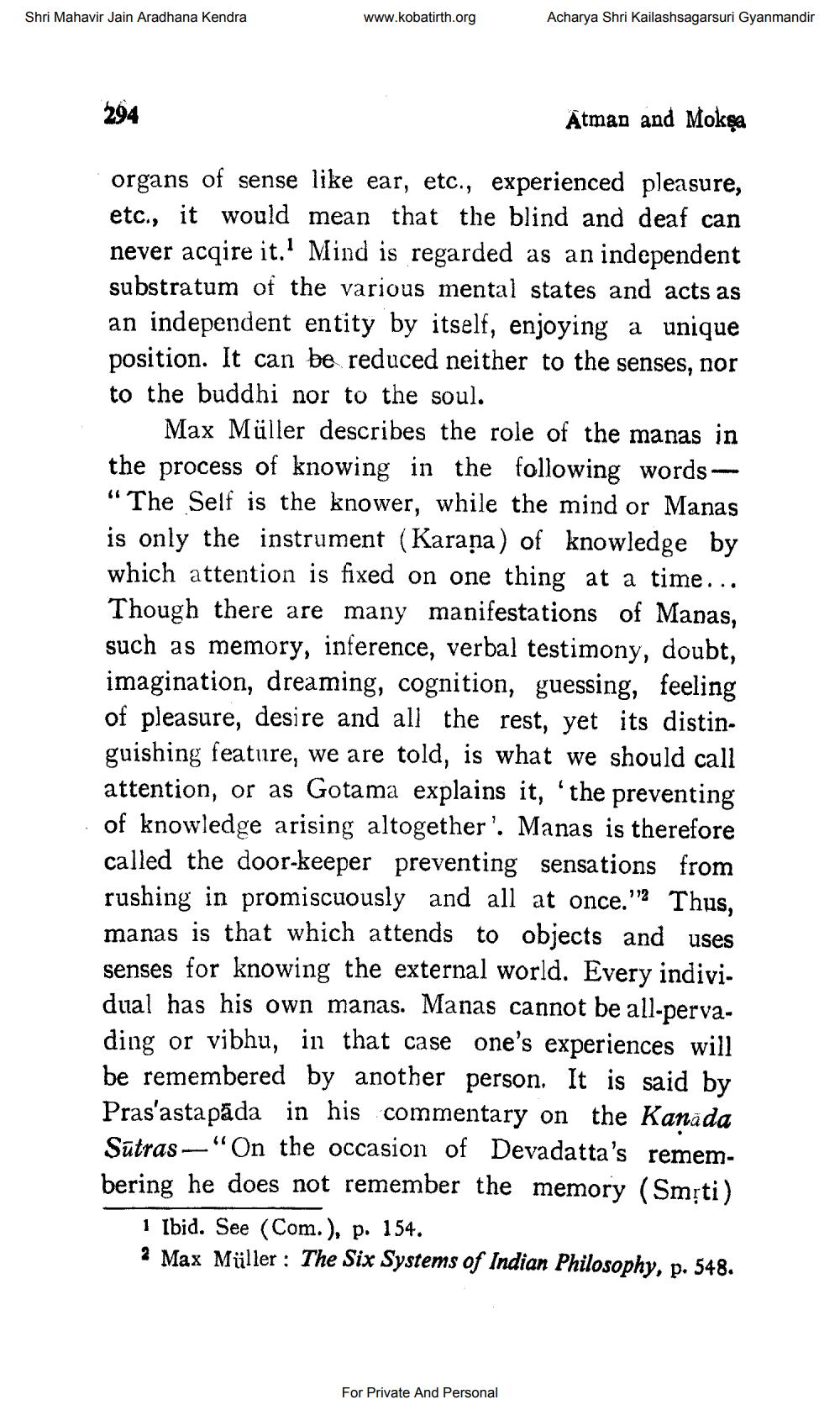________________
Shri Mahavir Jain Aradhana Kendra
www.kobatirth.org
Acharya Shri Kailashsagarsuri Gyanmandir
294
Atman and Mokşa
organs of sense like ear, etc., experienced pleasure, etc., it would mean that the blind and deaf can never acqire it.' Mind is regarded as an independent substratum of the various mental states and acts as an independent entity by itself, enjoying a unique position. It can be reduced neither to the senses, nor to the buddhi nor to the soul.
Max Müller describes the role of the manas in the process of knowing in the following words "The Self is the knower, while the mind or Manas is only the instrument (Karana) of knowledge by which attention is fixed on one thing at a time... Though there are many manifestations of Manas, such as memory, inference, verbal testimony, doubt, imagination, dreaming, cognition, guessing, feeling of pleasure, desire and all the rest, yet its distinguishing feature, we are told, is what we should call attention, or as Gotama explains it, 'the preventing of knowledge arising altogether’. Manas is therefore called the door-keeper preventing sensations from rushing in promiscuously and all at once. Thus, manas is that which attends to objects and uses senses for knowing the external world. Every individual has his own manas. Manas cannot be all-pervading or vibhu, in that case one's experiences will be remembered by another person. It is said by Pras'asta pāda in his commentary on the Kanada Sutras - "On the occasion of Devadatta's remembering he does not remember the memory (Smsti)
1 Ibid. See (Com.), p. 154. 2 Max Müller : The Six Systems of Indian Philosophy, p. 548.
For Private And Personal




